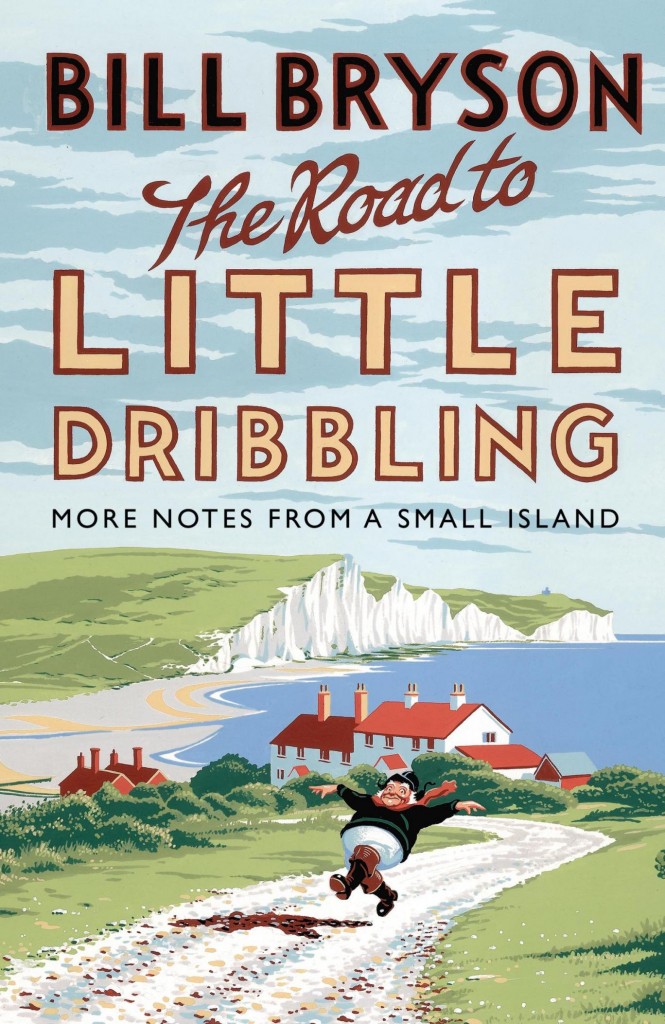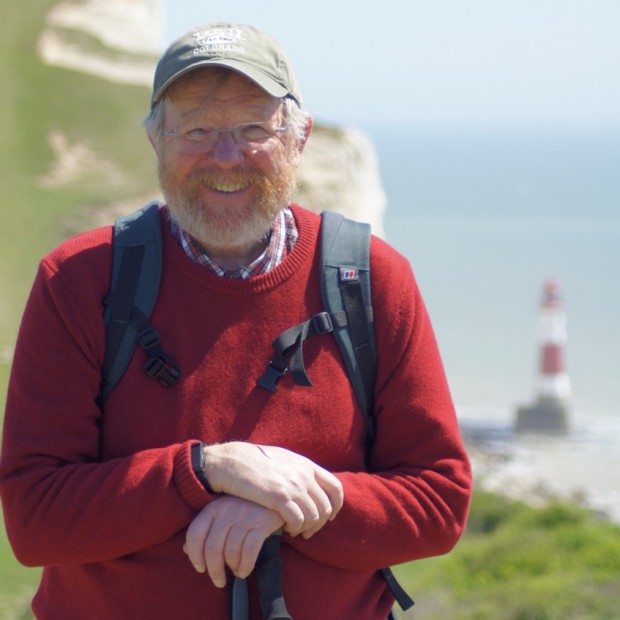 The Road to Little Dribbling is a return to travel writing for Bill Bryson, the genre that made him famous. His last few (excellent) books have been non-fiction microhistories: he’s tackled the life of Shakespeare, the history of our homes and the things in them, and guided us on a tour of the eventful summer of 1927 in America.
The Road to Little Dribbling is a return to travel writing for Bill Bryson, the genre that made him famous. His last few (excellent) books have been non-fiction microhistories: he’s tackled the life of Shakespeare, the history of our homes and the things in them, and guided us on a tour of the eventful summer of 1927 in America.
It’s not a secret that I love Bill Bryson. I bought this one from Amazon UK and had it shipped across the Atlantic so I could read it three months before the US publication date. I was very excited to resume armchair traveling with my favorite Midwesterner turned Brit.
And… I enjoyed reading it. I didn’t love it. It’s not his best, but it’s still fun to travel along with him as he revisits the country he first fell in love with over 40 years ago. He’s always been a bit of a curmudgeon, in an endearing way. He can be cranky, but he still finds a lot of delight in life. In his personal memoirs or travelogues he usually strikes a wonderful balance between the two sides: making us laugh at the things that make him cranky (which I think he’s also doing behind the scenes, after the fact) with the moments of contentment he conveys so successfully.
In The Road to Little Dribbling his curmudgeon side came out a little more than normal, and not so lightheartedly. Here’s an example of a cranky ramble I could have done without:
“Now I have to say right here that I didn’t like this young man already because he had a vaguely insolent air. Also, he had a lot of gel in his hair. My family tells me that you can’t dislike people just because they have gel in their hair, but I think it is as good a reason as any.” (It went on – but I’ll stop here.)
But there are also shining examples of his curmudgeonly nature at its best, such as:
“It was a better day for walking than bathing — cool and overcast. Still, there were a fair number of people on the beach. Some were pretending to enjoy themselves. A few were doggedly sun-bathing in defiance of the fact that the sky was a duvet of clouds. A small number were actually swimming, or at least bouncing in the waves. Years ago, when my wife and I were just dating, she took me on a day trip to the seaside at Brighton. It was my first exposure to the British at play in a marine environment. It was a fairly warm day — I remember the sun came out for whole moments at a time — and large numbers of people were in the sea. They were shrieking with what I took to be pleasure, but now realize was agony. Naively, I pulled off my T-shirt and sprinted into the water. It was like running into liquid nitrogen. It was the only time in my life in which I have moved like someone does when a piece of film is reversed. I dived into the water and then straight back out again, backwards, and have never gone into an English sea again.
Since that day, I have never assumed that anything is fun just because it looks like the English are enjoying themselves doing it, and mostly I have been right.”
You’ll also find many of the little facts and trivia that make his books so wonderful. He does a lot of research for each of his projects, and he’s brilliant at finding interesting moments or coincidences that completely delight him, and then describing them in a way that makes the reader giggle too. Such as:
“I am also an admirer of Sir Lawrence Bragg, who won the Nobel Prize for his work on X-ray crystallography in 1915. Bragg later became the first president of the Royal Institution in London. He loved the work, but missed gardening, so he took a job as a gardener one day a week at a house in South Kensington. The woman who engaged him had no idea that her gardener was one of the most distinguished scientists in Britain until a friend came for tea one day and, looking out the window, casually asked: ‘My dear, why is the Nobel laureate Sir Lawrence Bragg pruning your hedges?'”
Final verdict: it’s not perfect. This isn’t the Bill Bryson book you’d want to recommend to anyone new to his work. But its faults can be overlooked for its redeeming qualities, and fans of Bryson will enjoy the time they spend with him revisiting England.
//
Add The Road to Little Dribbling on GoodReads. Buy it from an independent bookstore.
Author photo above by Sam Bryson.

I just recently finished this book, and I thought it was pretty gosh darn great. I love Bill Bryson, and I easily consider him one of my favorite authors. The first book I ever read by Bryson was Notes from a Small Island, so I was especially giddy when I heard about the Road to Little Dribbling. Now I basically have to spent the next year recommending it to all of my family and friends :D
I love him so much too – he’s the one author I feel confident recommending to almost everyone. I really enjoyed this one too – and it added a ton of places in England to my “must visit list!” I did feel like it wasn’t quite as strong as his others though, so I’d probably recommend starting with a different one to those new to Bryson. But it’s still very enjoyable, and won’t disappoint Bryson fans. I wish he’d write more! I supposed a book every 2-3 years isn’t bad, but I’ll devour any and everything he writes! :D
Do you have a Bill Bryson book you’d recommend starting with? I love nonfiction and can’t believe I haven’t picked up anything of his yet.
Yes! If you enjoy travel memoirs, I love “In a Sunburned Country” – it’s a great combination of travelogue + history. If you enjoy more traditional non-fiction, “At Home” or “America, Summer 1927” are both excellent, depending on what you feel like learning about. And if you love traditional memoirs, his account of his childhood in “The Life and Times of the Thunderbolt Kid” is so fun & interesting.